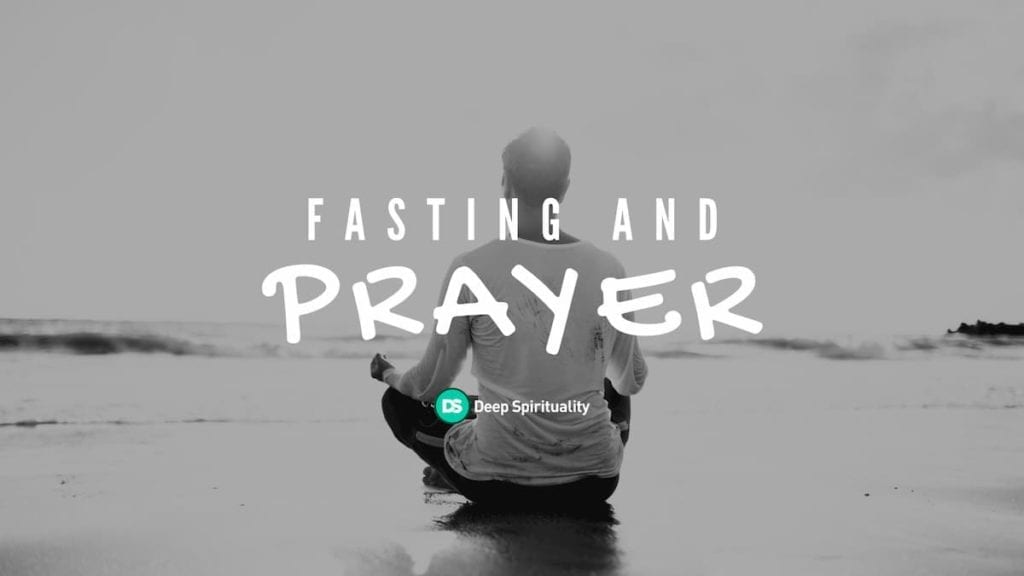I remember growing up and wrestling with the realization that my older brother and I were different.
I knew and recognized that he had Down Syndrome, but I grappled with understanding what that truly meant.
At the same time, my parents would regularly take us to play in an inclusive soccer program together. Being part of this program was not easy for me at first. It felt unfair that I had to pass the ball when I did not want to or keep from stealing the ball when I did. I did not like that I got less attention even when I won the drill or and I did not like celebrating others more than myself.
Yet as I grew older, I developed a deep respect for a concept I was unknowingly learning: service.


Being a part of these kinds of programs became something my family did together for most of my life, and it brought us great joy to do so. It became part of our family identity and developed passions in me that I carry on still today. Ultimately, I learned of the deep joy that came from connecting with others while serving them and watching them succeed or grow.
As I reflect on my experiences with my brother, I find that though they were not always easy, I am profoundly grateful for him and my family. I find my life to be so much more full and colorful because of him and the ways we served together as a family. Even now I feel indebted to him, as I know I would not be who I am today without him.
Serving others brings a lot of joy
As pressure and stress bear down on me, I find joy in your commands.
Psalm 119:143 NLT
Life is not always simple and easy. Pressure and stress are inevitable facts of life, but with God we have the power to choose to be joyful even in those difficult times.
And joy is not just for ourselves; we can also bring it to our home and family as well. As the scripture above says, the secret to finding joy lies within God’s commands. And God’s commands teach us to love, as we see in John 15:
This is my commandment: Love each other in the same way I have loved you. There is no greater love than to lay down one’s life for one’s friends.
John 15:12-13 NIV
For a lot of my life, I thought God and the Bible were all about rules, behavior, and performance. It was not until I resolutely read the Bible myself that I discovered God’s true nature. The truth is, he is all about relationships.
As we see in the scripture above, God takes something that most of us often dislike in our own lives – “commands” – and turns them into something that all of us respect and desire deep down: love.
No matter what the circumstance, we can choose to be joyful through serving others.
This is who God really is – God loves love. He is inherently relational. And when we combine this scripture with the first, we discover something even more surprising. We can rephrase Psalm 119:143 to essentially say, “as pressure and stress bear down on me, I find joy in laying down my life for others.”
Honestly, even as I write this, I find the concept deeply counterintuitive and difficult to believe. I find myself resistant to wanting to live this out in my own life. But no matter how I feel about it, a true and powerful fact remains: no matter what the circumstance, we can choose to be joyful through serving others.
Yes! It is a choice we can make in any situation and at any point in our life – to take joy in walking with God by serving others…through any trial, through deep humility, through persistent prayer, through faithful action, and through being together.
Serving others starts by walking with God
We do this by keeping our eyes on Jesus, the champion who initiates and perfects our faith. Because of the joy awaiting him, he endured the cross, disregarding its shame. Now he is seated in the place of honor beside God’s throne. Think of all the hostility he endured from sinful people; then you won’t become weary and give up.
Hebrews 12:2-3 NLT
Jesus endured deep and profound mental, emotional, physical, and spiritual pain when he went to the cross. How did he find the strength to get through this trial without giving up?
Jesus’ joy was in anticipating getting to sit next to and be with God. As he was laying down his life, he knew the pain would bring him closer to God.
This is a powerful example for us to follow. It reveals the true strength of finding joy in our walk with God.
And though our circumstances are different than his, we too can find joy no matter what trial we are in when we deeply value being close to God and doing God’s will, as Jesus did.
“And now, brothers and sisters, we want you to know about the grace that God has given the Macedonian churches. In the midst of a very severe trial, their overflowing joy and their extreme poverty welled up in rich generosity. For I can testify that they gave not only what they could afford, but far more.
And they did it of their own free will. They begged us again and again for the privilege of sharing in the gift for the believers in Jerusalem. They even did more than we had hoped, for their first action was to give themselves to the Lord and to us, just as God wanted them to do.”
2 Corinthians 8:1-2 NIV
This passage describes the Macedonian churches, who were extremely generous and joyful through a severe trial. They developed such a desire to give because they first gave themselves to God.
I once had a friend of mine who, to this day, I regard as the happiest person I have ever known. Every time I saw him, his face lifted up with a smile as he said hello with eager enthusiasm, excited to see me. It made me feel as if I were the most important person to him, though I know he did this not because he thought I was someone special. He treated everyone this way. In fact, maybe it would be more accurate to say that everyone truly was special to him.
I saw him eager to sit with and talk with anyone, as he made an effort to connect with those who had special needs or more difficult times connecting in relationships. He made time to go above and beyond serving in any capacity he could manage at events and functions. He wanted to be there as a friend, to support those around him. His life was never too busy to be around others and give to them.
Jesus’ joy was in anticipating getting to sit next to and be with God.
Notably, this person had significant health complications that drove him into the hospital regularly with pain that was severe and consistent. Other than the fact that he openly and regularly shared his situation with anyone around, I would have never known by his giving attitude and life.
I never heard any complaints from him, never heard any grumblings. I only heard joy, laughter, cheers, advice, and good, personal real stories. I learned a deep and profound lesson from this friend, that is echoed in the scripture above.
As we go through various trials in our life, no matter how we suffer, we can find joy by doing God’s will in giving to and serving others.
Reflection questions
- What pain or challenges are you currently experiencing?
- How can you find comfort and joy in your relationship with God with what you are going through so that you can have joy in giving to others?
Serving others requires deep humility
Philippians 2:3-11 NLT
Don’t be selfish; don’t try to impress others. Be humble, thinking of others as better than yourselves. [4] Don’t look out only for your own interests, but take an interest in others, too. [5] You must have the same attitude that Christ Jesus had. [6] Though he was God, he did not think of equality with God as something to cling to. [7] Instead, he gave up his divine privileges; he took the humble position of a slave and was born as a human being. When he appeared in human form, [8] he humbled himself in obedience to God and died a criminal’s death on a cross. [9] Therefore, God elevated him to the place of highest honor and gave him the name above all other names, [10] that at the name of Jesus every knee should bow, in heaven and on earth and under the earth, [11] and every tongue declare that Jesus Christ is Lord, to the glory of God the Father.
In Philippians 2:3-11, Paul describes Jesus’ death on the cross as a profound act of humility and an example we can follow. Contrary to what we may intuitively think, the humbling aspect of service is also something that can give us great joy.
John the Baptist describes feeling this kind of joy when he saw Jesus’ success:
John 3:26-30
So John’s disciples came to him and said, “Rabbi, the man you met on the other side of the Jordan River, the one you identified as the Messiah, is also baptizing people. And everybody is going to him instead of coming to us.” [27] John replied, “No one can receive anything unless God gives it from heaven. [28] You yourselves know how plainly I told you, ‘I am not the Messiah. I am only here to prepare the way for him.’ [29] It is the bridegroom who marries the bride, and the bridegroom’s friend is simply glad to stand with him and hear his vows. Therefore, I am filled with joy at his success. [30] He must become greater and greater, and I must become less and less.
Finding the humility to serve is one of the greatest challenges I face in my life. I can walk blinded by my pride, often knowing it exists but lacking the humility to want to see it, admit it, and change it. My wife, family, and friends regularly point it out to me and reveal the ways my condescension, disrespect, or disregard has hurt them. And still at times I have the audacity to believe that what they feel from or see in me is simply not true.
In these times I simultaneously find it hard to believe that God wants to give me joy and that the reason I miss this joy from him is because of my pride.
When I decide to value others over myself by admiring them, considering them, thinking of them, or valuing their perspectives and feelings over my own, my self-importance goes down, and I grow less concerned about my own insecurities and need for status and recognition. Instead I am humble and able to relax, finding joy in the relationships.
When we serve others, we get the chance to experience the joy of admiration and humility. We humble ourselves by not taking pride in our position, prominence, perspective, or progress, but in the elevated greatness and importance of others. Their victories and growth become even more important and more fulfilling than our own.
Reflection questions
- In what ways do you resist listening to or learning from others?
- What insecurities drive you to be proud in relationships?
- In what area of life do you need help, and how can you learn from others this week?
Serving others is an opportunity for prayer
“Simon, Simon, Satan has asked to sift all of you as wheat. But I have prayed for you, Simon, that your faith may not fail. And when you have turned back, strengthen your brothers.”
Luke 22:31-32 NIV
Jesus sets an example here for us to follow in serving others through prayer. Jesus knew Peter was about to turn his back on him (Luke 22:33-34), but he was not judgmental. He was not frustrated. He did not harp on Peter to do better or persist in figuring out what was wrong with Peter.
Instead Jesus decided to pray. In doing so, Jesus confidently stated that “when” – not “if”- Peter turned back, he should strengthen his brothers.
“Then, teaching them more about prayer, he used this story: ‘Suppose you went to a friend’s house at midnight, wanting to borrow three loaves of bread. You say to him, “A friend of mine has just arrived for a visit, and I have nothing for him to eat.”
And suppose he calls out from his bedroom, “Don’t bother me. The door is locked for the night, and my family and I are all in bed. I can’t help you.” But I tell you this—though he won’t do it for friendship’s sake, if you keep knocking long enough, he will get up and give you whatever you need because of your shameless persistence.’”
Luke 11:5-8 NLT
Here, Jesus tells us a story to help us understand prayer. Imagine you had a friend come by to stay with you and you had nothing to give that friend. I don’t know about you, but I often find myself in this predicament in my own household: being “asked” to serve when I have nothing left to give.
I hate seeing chores undone after feeling drained from a long day. I get really resistant being asked to help with a task when I feel in need of a break. Or when my spouse asks for my help processing an emotional situation.
However, in these times I can think that the most effective use of my time is to do things myself. For instance, instead of praying for my spouse, I look for ways to fix her problems myself.
Why Fasting and Prayer Will Renew Your Focus on God
So much of life is impossible with only human effort. Start relying on God by learning why and how to fast and pray.
The truth is that one of the best and most loving ways to serve those we care for is to pray for them. So when I choose not to pray for those around me and in my home, it is because I have allowed myself to be controlled by deep selfishness.
Part of this is also praying for my own heart to change and grow more serving and humble with my spouse. The times I grow emotionally reactive in wanting others to serve me are actually a barometer for how much more I need God so that I can love them.
The individual in this scripture was different. He did not complain or send his friend away, and he did not spin his wheels looking for a makeshift solution to the issue. Rather he went to a neighbor to ask for help.
Jesus uses this act of going to a neighbor’s house on behalf of a friend to describe the persistence we should have in prayer ourselves. When we are empty, we can still give and serve others through persistent prayer, and in doing so, find joy.
Reflection questions
- How persistent are you in your prayers for others?
- How much do you pray to become more serving and loving at home?
Serving others means taking action
“Then Jesus explained: ‘My nourishment comes from doing the will of God, who sent me, and from finishing his work.’”
John 4:34 NLT
Jesus’s nourishment, meaning his life, his energy, his excitement, his fulfillment, and his joy, came from doing God’s will. This shows us it’s not just enough to appreciate and believe the scriptures and thoughts in this article, but we must put them into action to really find this true joy.
“You see, his faith and his actions worked together. His actions made his faith complete.’”
James 2:22 NLT
As stated above, and made clear in the scripture, it is not enough to just believe the scriptures we read. We must take action for it to be complete. This is true when it comes to giving and serving others as well.
I find it all too easy and convenient to simply enjoy a time of reflection without taking action in my life. I tend to choose to rely on indulging in the feeling of having a good thought or idea rather than actually experiencing the joy that comes from living out the scriptures.
It helps me to ask myself questions that turn God’s words into practical application in my life. How can you take action today to give to and serve others? What creative ways can you give to and serve others in your household this week?
Below are examples of ways you can serve at home or with your household.
In marriage
- Start by reading Ephesians 5:25-33
- Set aside special times together to talk
- Go on prayer walks together
- Share what you each are learning in your personal times with God
- Make Bible studies to inspire your spouse to grow
- Initiate cleaning the house, making dinner, or ___________ (fill in the blank)
For families and households
- Start by reading Acts 2:42-47
- Pray together and eat meals together
- Do activities that encourage others in your household
- Host virtual hangouts with friends and family
- Find ways to serve the community together as there are so many needs (volunteer your time)
Serving others brings us together
“And he said to them, ‘I have eagerly desired to eat this Passover with you before I suffer.’”
Luke 22:15 NLT
Jesus found joy in being together, even in his most challenging moments. This statement was made just before Jesus died for those who did not love him, while his friends deserted him. Knowing this would happen, he still found joy in being together with them.
“Every time I think of you, I give thanks to my God. Whenever I pray, I make my requests for all of you with joy, for you have been my partners in spreading the Good News about Christ from the time you first heard it until now.”
Philippians 1:3-5 NLT
When I played high school basketball, I had a coach who loved to make us run. He would have us go through “optional” multiple hour-long workouts and conditioning sessions. I remember more practices that never included a basketball than practices that did.
One day in particular, I looked over at one of my best friends. We were both drenched in sweat and completely out of breath. We barely had the strength to stand and walk toward the locker room, yet we knew we were only about halfway done with practice.
I remember we first looked at each other with surprised faces, then exasperated ones. Finally we both started smiling and one of us said what we both were thinking: “I know we hate it now, but we are going to love it when we are done.”
The bonds of togetherness that are formed when you give all of yourself to something are extremely powerful.
It was a moment where we realized that, while the pain was temporary, we were so grateful for the experience of pushing ourselves to get better and doing it together. We loved the feeling of knowing that no one could be working harder than us. And more than that, we loved the feeling of knowing that only the guys in that locker room knew exactly what we were going through. It bonded us.
The bonds of togetherness that are formed when you give all of yourself to something are extremely powerful. I remember it also for my own family – how great it was to be able to be together as we served and gave to those around us. It showed me that one of the things that helps us find joy is the closeness created when we serve together.
Reflection questions
- What ways can you serve together with your household this week?
- What does it mean to serve for you personally, given your life point?
Explore more:
An alum from both Santa Clara University and Stanford University, Nick is passionate about helping people see God from a new perspective, and is an occasional contributor to the Deep Spirituality writing team.
An alum from both Santa Clara University and Stanford University, Nick is passionate about helping people see God from a new perspective, and is an occasional contributor to the Deep Spirituality writing team.






